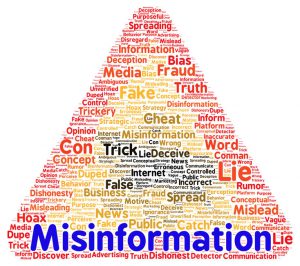 The Ohio Consumer Sales Practices Act ("OCSPA") (Ohio Rev. Code § 1345.01 et seq.) is a set of laws that aim to protect consumers from sales practices that are deceptive, unfair, or unconscionable. While the OCSPA serves a legitimate need of protecting consumers, its impact on businesses can be profound. Many Ohio businesses (especially smaller ones) simply do not realize that their actions are subject to the OCSPA. What’s more, although many well-intentioned business owners know that the OCSPA lurks, they fail to take the time and effort necessary to ensure that they are in compliance.
The Ohio Consumer Sales Practices Act ("OCSPA") (Ohio Rev. Code § 1345.01 et seq.) is a set of laws that aim to protect consumers from sales practices that are deceptive, unfair, or unconscionable. While the OCSPA serves a legitimate need of protecting consumers, its impact on businesses can be profound. Many Ohio businesses (especially smaller ones) simply do not realize that their actions are subject to the OCSPA. What’s more, although many well-intentioned business owners know that the OCSPA lurks, they fail to take the time and effort necessary to ensure that they are in compliance.
Remedial Law
Before getting into the meat of the OCSPA, one first needs to understand its purpose. The OCSPA is a remedial law that is "designed to compensate for traditional consumer remedies" and, as such, is "liberally construed" by Ohio courts.[i] Its objective is to make private enforcement more appealing to consumers "who otherwise might not be able to afford or justify the cost of prosecuting an alleged CSPA violation, which, in turn, works to discourage CSPA violations in the first place via the threat of liability for damages and attorneys fees."[ii] In some ways, then, the OCSPA is similar to class action lawsuits in that it is designed in a manner to make it easier and more attractive for consumers to bring lawsuits that they would otherwise have little incentive to bring.
Does it Apply to Me?
How does a business determine whether the OCSPA applies? First, it must look to Ohio Rev. Code §§ 1345.02 and .03. Ohio Rev. Code § 1345.02(A) prohibits a supplier from committing "unfair or deceptive" acts in a "consumer transaction." Deceptive or unfair acts are "those that mislead consumers about the nature of the product they are receiving."[iii] A non-exhaustive list of representations considered to be deceptive can be found in Ohio Rev. Code § 1345.02(B). For example, representing to someone that what they are buying is new or unused, when in fact it is not, is considered deceptive.[iv] The Ohio Attorney General has also adopted rules expressly defining various practices that violate Ohio Rev. Code § 1345.02.[v] For example, it is considered deceptive (and thus a violation of the OCSPA) when a supplier uses the word "free" with respect to a transaction, when in reality the costs of the "free" offer are passed to the consumer by raising the price of the goods or services that must be purchased in conjunction with the "free" offer. Ohio Admin. Code § 109:4-3-04.
Similarly, Ohio Rev. Code § 1345.03(A) prohibits suppliers from committing "an unconscionable act or practice in connection with a consumer transaction." Unconscionable acts are those that "relate to a supplier manipulating a consumer's understanding of the nature of the transaction at issue."[vi] Although "unconscionable" is not expressly defined in the statute, businesses may look to Ohio Rev. Code § 1345.03(B), which provides various factors to be considered when determining whether a supplier has knowingly taken unfair advantage of a consumer (for example, did the supplier knowingly give a misleading opinion on which the consumer was likely to rely?).
Am I a Supplier?
The obvious next step, then, is to determine whether one is a "supplier." Ohio Rev. Code § 1345.01(C) defines a supplier as "a seller, lessor, assignor, franchisor, or other person engaged in the business of effecting or soliciting consumer transactions, whether or not the person deals directly with the consumer." Straightforward enough, right? Clearly, the definition of "supplier" is very broad and likely covers many businesses that just don't realize they are subject to the act. A good follow-up step is to determine whether the transaction qualifies as a consumer transaction. A consumer transaction, essentially, is one that involves an exchange of goods or services for personal purposes, as well as any solicitation to do so:
"'Consumer transaction' means a sale, lease, assignment, award by chance, or other transfer of an item of goods, a service, a franchise, or an intangible, to an individual for purposes that are primarily personal, family, or household, or solicitation to supply any of these things."
Ohio Rev. Code § 1345.01(A).
So, if one is a supplier and is involved with consumer transactions, then the OCSPA applies. As noted above, what constitutes an unfair, deceptive, or unconscionable act is not limited to the provisions of the OCSPA (Ohio Rev. Code § 1345.01 et seq.). Such acts have also been enumerated by the courts as well as the Ohio Attorney General. It is imperative that businesses – especially smaller ones – educate themselves and their employees as to how to comply with the Act. Discussion with an attorney well-versed in this area of law is a good place to start.
Stay tuned for my second blog piece on the OCSPA, which will focus on the hefty damages and other provisions of the Act that combine to make violations incredibly costly (and thus a huge headache) for businesses.
[i] Whitaker v. M.T. Automotive, Inc., 111 Ohio St. 3d 177, 2006-Ohio-5481, 855 N.E.2d 825, at ¶11 (citation omitted).
[ii] Id. (Citation omitted).
[iii] Whitaker, 2006-Ohio-5481 at ¶10 (citation omitted).
[iv] Ohio Rev. Code § 1345.02(B)(3).
[v] Ohio Admin. Code § 109:4-3.
[vi] Whitaker, 2006-Ohio-5481 at ¶10.
